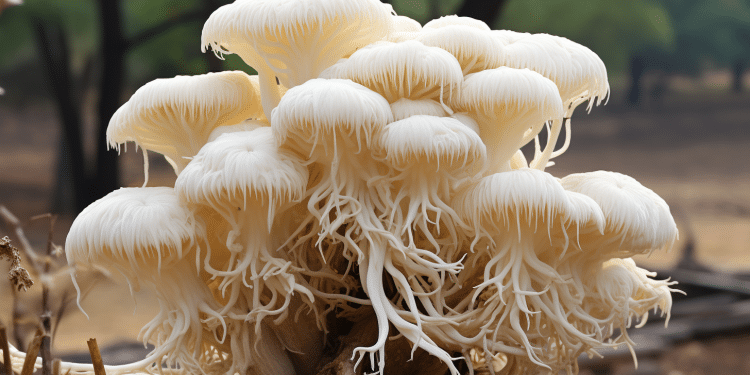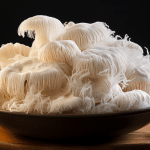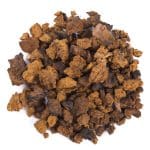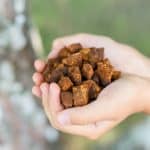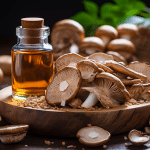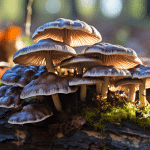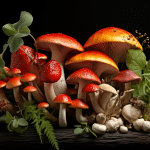There is some evidence that lion’s mane mushroom may help to lower testosterone levels in men.This could be a good thing or a bad thing, depending on your individual situation. In this blog post, we will take a closer look at the research on the question does lion’s mane mushroom lower testosterone, and discuss what it means for you. Stay tuned!
So Does Lion’s Mane Mushroom Lower Testosterone?
Currently, there is a lot of uncertainty regarding the long-term effects of lion’s mane mushroom and it’s effect on testosterone production. In the studies done thus far, lion’s mane mushroom has not been shown to lower testosterone.
Does Lion’s Mane Mushroom Increase Testosterone?
Testosterone is an androgen, the male sex hormone, which promotes male-sex characteristics development (such as increased body hair and an increased capacity for generating muscle faster). The production of testosterone begins in the hypothalamus. The hormone is converted into dihydrotestosterone (DHT, abbreviated) throughout the body, exerting effects in a variety of tissues. Lions Mane mushrooms can boost the production of testosterone by beneficial effects on the brain (particularly in the hypothalamus).
How Does Lion’s Mane Mushroom Affect Hormones?
Lions Mane Mushroom has the potential to influence hormonal production by stimulating neural growth, especially in the hypothalamus. A known nootropic, Lion’s mane mushroom appears to promote neurogenesis. A Japanese study of lion’s manes’ neurogenetic potential suggests this mushroom mitigates cognitive disorders by stimulating nerve cell production. Lions mane mushrooms contain compounds that contribute to production of brain-derived neurotrophic factors (BDNF).
BDNF, in turn, regulates hypothalamic hormone production (growth hormone, vasopressin, adrenocorticotropic hormone, etc.). Thus, by stimulating BDNF, these adaptogenic mushrooms can modulate the production of specific hormones. This calls for more studies of the effects of Hericium erinaceus on hormones, particularly in humans.
Does Lion’s Mane Mushroom Affect DHT?
Because there is not enough research, we cannot really know exactly how the lions mane impacts the production of dihydrotestosterone. DHT is a hormone in the hypothalamus. Thus, Hericium erinaceus can promote production of this hormone through stimulating hypothalamic neurogenesis. This hypothesis is promising and deserves more investigation, particularly in human subjects.
There is some anecdotal evidence that certain medicinal mushrooms have a decreased sex drive, and there is even some documentation that other medicinal mushrooms (Reishi mushrooms and Yellow Jelly fungi) have been noted to create a decrease testosterone production, which may be related to a lower sex drive.
However, studies on yeast and bats were conducted with the goal of developing drugs for combating brain cancer. Although several animal trials suggest that Lion’s Mane may help control brain tumors, clinical data from humans is lacking and suggests that it can reduce tumor size but not enhance survival rates (p=0.008). Mushrooms may be a part of the same family but are not identical in nutritional value or chemical composition.This implies that the connection between Lion’s Mane mushrooms and testosterone production has yet to be fully investigated.
If you’re concerned about this being a negative consequence, keep in mind that cordycep has been shown to increase testosterone production in certain circumstances. In fact, one study found that cordyceps could aid in the production of testosterone and human growth hormone (HGH) by as much as 25%! There are also some studies showing that it will increase libido. Does Lion’s Mane mushroom decrease testosterone or not? Let us know what you think on Facebook or Twitter.
Additional Resources:
Does Lion’s Mane Mushroom Help With Pain?
Does Lion’s Mane Mushroom Prevent Sleep?
The Best Lion’s Mane Supplements
The Best Lion’s Mane Tinctures
Updated 10/6/2022
